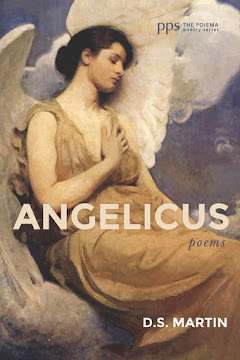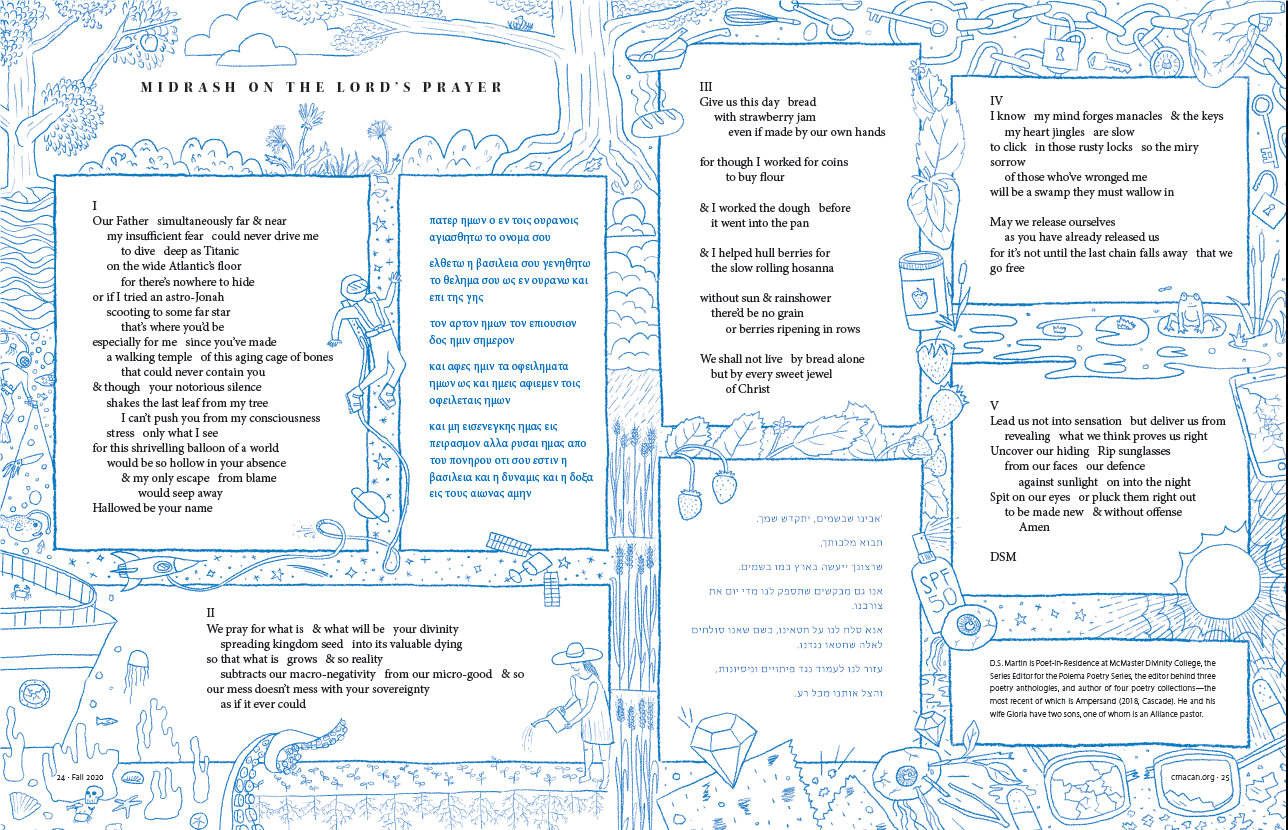Vassar Miller (1924—1998) is the author of ten poetry books, including If I Had Wheels or Love (1991) her collected poems. She has a strong reputation within her home state of Texas, but is not well known beyond its borders. She was a finalist for the Pulitzer Prize in 1961 for her second collection Wage War on Silence. Leon Stokesbury in 1988 referred to her as “Texas’s greatest poet”.
She suffered her whole life with cerebral palsy, and lived in Houston’s museum district. She was often seen riding her motorized cart to church or to the creative writing classes she taught at the University of St. Thomas. “Sometimes it would tip over and she would laugh,” said a rector at the Episcopal church she attended. “She had raucous laughter.”
The University of North Texas Press has named an annual poetry award in her honour.
Lullaby after Christmas
Little Child sleep softly,
Mary’s lullaby,
Worship of the shepherds,
Anthems from on high
May postpone the message:
You are born to die.
Little Child sleep softly,
To the tinkling coffer
Of the Three Kings bearing
Gifts they humbly offer
Lest the myrrh remind you
You are born to suffer.
Little Child sleep softly,
Ass and sheep adore You,
Hoping that their breath may
Warm the way before you.
Sharper than the horns of
Oxen, nails will gore you.
Little Child sleep softly,
Blood of babies slain
Near Your crib foreshadows
Yours in its deep stain.
Even God has right to
Peace before His pain.
*This is the second Kingdom Poets post about Vassar Miller: first post
Entry written by D.S. Martin. He is the award-winning author of the poetry collections Poiema (Wipf & Stock) and So The Moon Would Not Be Swallowed (Rubicon Press). They are both available at: www.dsmartin.ca
Monday, December 31, 2012
Monday, December 24, 2012
John Donne*
John Donne (1572―1631) has now been established as one of the English language’s greatest poets; this was not always the case. In his own day, he was better known as a preacher — serving as dean of St. Paul’s Cathedral. During his lifetime his verse circulated in manuscript form among those who valued it. Immediately after his death it was published in several editions, but soon fell out of fashion to be all but forgotten for centuries. During these years some poets, such as Samuel Taylor Coleridge and Robert Browning, were solitary voices in praise of John Donne. It wasn’t until the 1920s that admirers including William Butler Yeats and T.S. Eliot succeeded in drawing the attention of the literary world to Donne's poetry.
The following poem is the third from “La Corona” from Donne’s Holy Sonnets.
Nativity
Immensity cloistered in thy dear womb,
Now leaves his well-beloved imprisonment,
There he hath made himself to his intent
Weak enough, now into our world to come;
But Oh, for thee, for him, hath th'Inn no room?
Yet lay him in this stall, and from the orient,
Stars, and wisemen will travel to prevent
Th'effect of Herod's jealous general doom;
See’st thou, my soul, with thy faith's eyes, how he
Which fills all place, yet none holds him, doth lie?
Was not his pity towards thee wondrous high,
That would have need to be pitied by thee?
Kiss him, and with him into Egypt go,
With his kind mother, who partakes thy woe.
*This is the second Kingdom Poets post about John Donne: first post, third post.
Entry written by D.S. Martin. He is the award-winning author of the poetry collections Poiema (Wipf & Stock) and So The Moon Would Not Be Swallowed (Rubicon Press). They are both available at: www.dsmartin.ca
The following poem is the third from “La Corona” from Donne’s Holy Sonnets.
Nativity
Immensity cloistered in thy dear womb,
Now leaves his well-beloved imprisonment,
There he hath made himself to his intent
Weak enough, now into our world to come;
But Oh, for thee, for him, hath th'Inn no room?
Yet lay him in this stall, and from the orient,
Stars, and wisemen will travel to prevent
Th'effect of Herod's jealous general doom;
See’st thou, my soul, with thy faith's eyes, how he
Which fills all place, yet none holds him, doth lie?
Was not his pity towards thee wondrous high,
That would have need to be pitied by thee?
Kiss him, and with him into Egypt go,
With his kind mother, who partakes thy woe.
*This is the second Kingdom Poets post about John Donne: first post, third post.
Entry written by D.S. Martin. He is the award-winning author of the poetry collections Poiema (Wipf & Stock) and So The Moon Would Not Be Swallowed (Rubicon Press). They are both available at: www.dsmartin.ca
Monday, December 17, 2012
Mario Luzi
Mario Luzi (1914—2005) is one of Italy’s best-known modern poets. His first book of poetry La Barca (The Boat) was published in 1935, and his final book L'avventura Della Dualità (The Adventure of Duality) appeared in 2003. He taught for years at the Universities of Florence and Urbino, and was nominated for the Nobel Prize in literature in 1991.
He is, according to Dana Gioia, “the Italian modernist whom I consider the greatest Catholic poet of the twentieth century.”
The following exerpt is from the book Phrases and Passages of a Salutary Song, translated by Luigi Bonaffini. Within this poem there is a section about the magi, and another about the shepherds. Whose voice this section of the poem is in, is not clear.
from Genia (from the section “Collapse and Overflow”)
Don’t remain hidden
in your omnipresence. Show yourself,
they want to tell him, but don’t dare.
The burning bush reveals him,
but it is also his
impenetrable hiding place.
And then the incarnation — he takes refuge
from his eternity under human
eaves, he descends
into the most tender womb
toward man, into man...yes,
but the son of man in whom he blazes
manifests him and conceals him...
So they advance in their history.
Entry written by D.S. Martin. He is the award-winning author of the poetry collections Poiema (Wipf & Stock) and So The Moon Would Not Be Swallowed (Rubicon Press). They are both available at: www.dsmartin.ca
He is, according to Dana Gioia, “the Italian modernist whom I consider the greatest Catholic poet of the twentieth century.”
The following exerpt is from the book Phrases and Passages of a Salutary Song, translated by Luigi Bonaffini. Within this poem there is a section about the magi, and another about the shepherds. Whose voice this section of the poem is in, is not clear.
from Genia (from the section “Collapse and Overflow”)
Don’t remain hidden
in your omnipresence. Show yourself,
they want to tell him, but don’t dare.
The burning bush reveals him,
but it is also his
impenetrable hiding place.
And then the incarnation — he takes refuge
from his eternity under human
eaves, he descends
into the most tender womb
toward man, into man...yes,
but the son of man in whom he blazes
manifests him and conceals him...
So they advance in their history.
Entry written by D.S. Martin. He is the award-winning author of the poetry collections Poiema (Wipf & Stock) and So The Moon Would Not Be Swallowed (Rubicon Press). They are both available at: www.dsmartin.ca
Monday, December 10, 2012
Martin Luther
 Martin Luther (1483—1546) is the German theologian who is considered the father of the Protestant Reformation. In 1517 he nailed his 95 Theses to the church door in Wittenberg. He was protesting against the selling of indulgences, and wanted the Pope to proclaim the truth of the gospel — that salvation is a result of justification by faith alone. Rome demanded that Luther recant from his proclamations, as insubordinate to papal authority. Luther refused, unless he be proved wrong based on scripture and reason. He held up the Bible as the only authority in such matters. By 1520 the Pope issued a bull, threatening excommunication, which Luther burned publically. This led to his excommunication the following year.
Martin Luther (1483—1546) is the German theologian who is considered the father of the Protestant Reformation. In 1517 he nailed his 95 Theses to the church door in Wittenberg. He was protesting against the selling of indulgences, and wanted the Pope to proclaim the truth of the gospel — that salvation is a result of justification by faith alone. Rome demanded that Luther recant from his proclamations, as insubordinate to papal authority. Luther refused, unless he be proved wrong based on scripture and reason. He held up the Bible as the only authority in such matters. By 1520 the Pope issued a bull, threatening excommunication, which Luther burned publically. This led to his excommunication the following year.Luther’s translation of the Bible was influential theologically, but also helped standardize the German language. It was also a significant influence on the English King James Version. His most famous hymn is “A Mighty Fortress Is Our God”, however he is the author of many other well-written pieces. Such hymns were an effective way to teach theology to the masses. Martin Luther established congregational singing in the German church; he believed that, “Next to the word of God, the noble art of music is the greatest treasure in the world...”
All Praise To Thee, Eternal Lord
All praise to Thee, Eternal Lord,
Clothed in a garb of flesh and blood;
Choosing a manger for Thy throne,
While worlds on worlds are Thine alone.
Once did the skies before Thee bow;
A virgin's arms contain Thee now,
While angels, who in Thee rejoice,
Now listen for Thine infant voice.
A little Child, Thou art our Guest,
That weary ones in Thee may rest;
Forlorn and lowly is Thy birth;
That we may rise to Heaven from earth.
Thou comest in the darksome night
To make us children of the light;
To make us, in the realms divine,
Like Thine own angels round Thee shine.
All this for us Thy love hath done;
By this to Thee our love is won;
For this we tune our cheerful lays,
And sing our thanks in ceaseless praise.
This is the first Kingdom Poets post about Martin Luther: second post
Entry written by D.S. Martin. He is the award-winning author of the poetry collections Poiema (Wipf & Stock) and So The Moon Would Not Be Swallowed (Rubicon Press). They are both available at: www.dsmartin.ca
Monday, December 3, 2012
Tania Runyan
Tania Runyan is an Illinois poet who has published one chapbook (which won Book of the Year by the Conference on Christianity and Literature in 2007) and two full-length collections. Her most recent book, A Thousand Vessels (2011, WordFarm), is divided into ten sections — one for each of ten different women from the Bible. Its predecessor Simple Weight is also concerned with the Biblical narrative — particularly with the beatitudes. Barbara Crooker said of that collection, "The poems have weight—emotional, spiritual, political—but are anything but simple."
The title of her new collection comes significantly from a poem about Christ’s mother: “Mary at Calvary”:
--------“God creates women for no reason
--------but grief. He can’t cry himself
--------and needs a thousand vessels for his tears...”
The following poem, also comes from the section relating to Mary in A Thousand Vessels.
Mary at the Nativity
The angel said there would be no end
to his kingdom. So for three hundred days
I carried rivers and cedars and mountains.
Stars spilled in my belly when he turned.
Now I can’t stop touching his hands,
the pink pebbles of his knuckles,
the soft wrinkle of flesh
between his forefinger and thumb.
I rub his fingernails as we drift
in and out of sleep. They are small
and smooth, like almond petals.
Forever, I will need nothing but these.
But all night, the visitors crowd
around us. I press his palms to my lips
in silence. They look down in anticipation,
as if they expect him
to spill coins from his hands
or raise a gold scepter
and turn swine into angels.
Isn’t this wonder enough
that yesterday he was inside me,
and now he nuzzles next to my heart?
That he wraps his hand around
my finger and holds on?
This is the first Kingdom Poets post about Tania Runyan: second post, third post.
Posted with permission of the poet.
Entry written by D.S. Martin. He is the award-winning author of the poetry collections Poiema (Wipf & Stock) and So The Moon Would Not Be Swallowed (Rubicon Press). They are both available at: www.dsmartin.ca
The title of her new collection comes significantly from a poem about Christ’s mother: “Mary at Calvary”:
--------“God creates women for no reason
--------but grief. He can’t cry himself
--------and needs a thousand vessels for his tears...”
The following poem, also comes from the section relating to Mary in A Thousand Vessels.
Mary at the Nativity
The angel said there would be no end
to his kingdom. So for three hundred days
I carried rivers and cedars and mountains.
Stars spilled in my belly when he turned.
Now I can’t stop touching his hands,
the pink pebbles of his knuckles,
the soft wrinkle of flesh
between his forefinger and thumb.
I rub his fingernails as we drift
in and out of sleep. They are small
and smooth, like almond petals.
Forever, I will need nothing but these.
But all night, the visitors crowd
around us. I press his palms to my lips
in silence. They look down in anticipation,
as if they expect him
to spill coins from his hands
or raise a gold scepter
and turn swine into angels.
Isn’t this wonder enough
that yesterday he was inside me,
and now he nuzzles next to my heart?
That he wraps his hand around
my finger and holds on?
This is the first Kingdom Poets post about Tania Runyan: second post, third post.
Posted with permission of the poet.
Entry written by D.S. Martin. He is the award-winning author of the poetry collections Poiema (Wipf & Stock) and So The Moon Would Not Be Swallowed (Rubicon Press). They are both available at: www.dsmartin.ca
Subscribe to:
Posts (Atom)






















